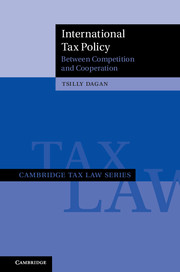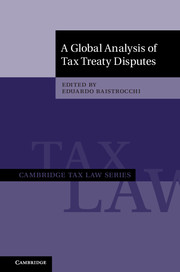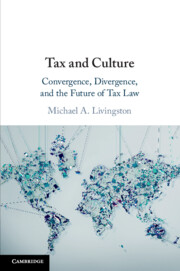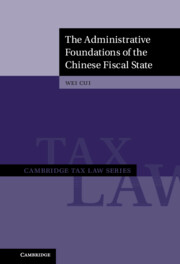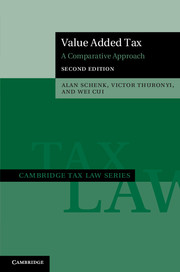International Tax Policy
Bringing a unique voice to international taxation, this book argues against the conventional support of multilateral co-operation in favour of structured competition as a way to promote both justice and efficiency in international tax policy. Tsilly Dagan analyzes international taxation as a decentralized market, where governments have increasingly become strategic actors. While many of the challenges of the current international tax regime derive from this decentralized competitive structure, Dagan argues that curtailing competition through centralization is not necessarily the answer. Conversely, competition - if properly calibrated and notwithstanding its dubious reputation - is conducive, rather than detrimental, to both efficiency and global justice. International Tax Policy begins with the basic normative goals of income taxation, explaining how competition transforms them and analyzing the strategic game states play on the bilateral and multilateral level. It then considers the costs and benefits of co-operation and competition in terms of efficiency and justice.
- A non-technical account of tax policy in an increasingly globalised era, appealing to those interested in international tax law and related issues
- A theoretical analysis of international tax policy that provides a necessary foundation for current debates on substantial changes in international tax policy
- Offers an integrated multidisciplinary framework for evaluating competing international tax regimes in a global setting
Reviews & endorsements
'This creative and imaginative work points in exactly the right directions for the advancement of scholarly thinking about international tax policy. Dagan rightly skewers both obsolete neutrality concepts and naive hopes for high-minded global cooperation, in favor of a searching and realistic look at multilateral issues.' Daniel Shaviro, Wayne Perry Professor of Taxation, New York University Law School
'Tsilly Dagan’s outstanding book is a major contribution to a crucial field of study. It offers an innovative view on where the international tax regime in the G20 and beyond should be heading in the years to come.' Eduardo Baistrocchi, London School of Economics and Political Science
'This book is the most important re-evaluation of the international tax regime in the post financial crisis era. Professor Dagan's incisive analysis shows the drawbacks of the post-crisis reforms in international taxation that were driven by the G20 and the OECD from a distributive justice perspective. It should be required reading for tax policy makers all over the world and especially within OECD and G20 countries.' Reuven S. Avi-Yonah, Irwin I. Cohn Professor of Law, University of Michigan
Product details
November 2017Adobe eBook Reader
9781108548267
0 pages
3 tables
This ISBN is for an eBook version which is distributed on our behalf by a third party.
Table of Contents
- Introduction
- 1. Dilemmas of tax policy in a globalized economy
- 2. Global planners and strategic players
- 3. The tax treaties myth
- 4. Costs of multilateral coordination
- 5. Cooperation and its discontents
- 6. International tax and global justice
- Conclusion and the road ahead.

